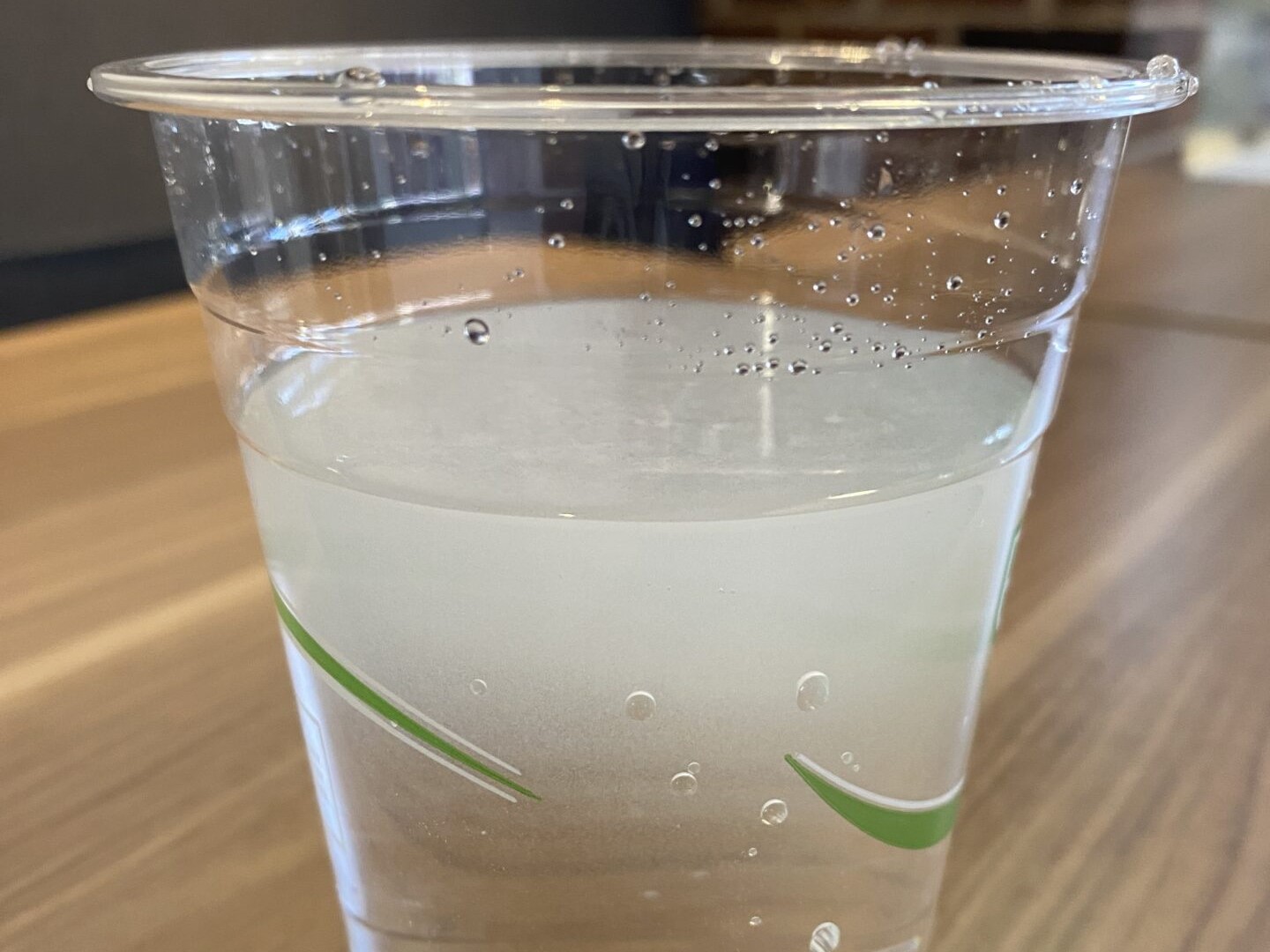St. Thomas students have raised concerns about the water quality in Grace Hall and Brady Education Center while the University has assured students that the water is safe.
In an email sent to residents of Grace Hall and Cretin Hall on Tuesday, Director of Residence Life Aaron Macke wrote that students were experiencing “beads” in their water because water softener beads were being flushed through the water system, but that they were flushed out again on Tuesday by staff.
But sophomore Grace resident Shewaye Jimenez noticed that the water from her sink faucet was cloudy roughly two weeks ago, a problem that she says has been exacerbated in the past few days.
“For the last two weeks we’ve always been kind of cautious of drinking the water from there,” Jimenez said. “We usually get bottled water, or I have a water bottle that filters water, so if I were going to get that water I would put it in my purifier. But then recently, the last week, I haven’t even been wanting to put it in the purifier because I don’t even think it could get clean from that.”
Jimenez said that water out of the faucets of Grace Hall appeared murky, and it took several minutes for the sediment to settle.
In an email to TommieMedia on Wednesday, Environmental Health and Safety Director Joe Klancher and Facilities Maintenance Director Mandy Yang wrote that any inconsistencies or discolorations in South Campus water were caused by the installation of new water heaters at the Binz Refectory on Thursday, Feb. 22. During the installation, the water supply was turned off and subsequently flushed in order to remove “non-hazardous” sediment that may accumulate in the process.
St. Thomas Geology professor Thomas Hickson says that power failures or local shutdowns cause the water system’s pumps to stop, which allows such sediment to accumulate.
“As soon as you shut down that pump, nobody’s using it for a short amount of time … there’s an opportunity for (sediment) to settle,” Hickson said.
Separate from the installation, the water softener in Binz Refectory had an “internal failure,” releasing water softener beads — as referenced in Macke’s email Tuesday — which are “not toxic but do change the appearance of the water” into Grace Hall’s hot water supply, according to Klancher and Yang.
Jimenez said that she emailed Residence Life about the poor water quality in Grace Hall and said that the water appeared clearer after the Facilities Team inspected the pipes in her room.
Other students, like senior Corissa Uberecken, said that the water in Brady Education Center has been unpleasant to taste and smell.
“We have a lot of rehearsals here, and usually this (water fountain) was the prime spot, right next to the auditorium, where you can go and fill up your bottle,” Uberecken said. “It almost has like a chlorine sort of aftertaste.”
TommieMedia reporters also noted that water out of the faucets of BEC appeared cloudy. TommieMedia sent an inquiry to a private water testing facility on Feb. 29 for a representative to come to campus and further investigate the water quality. That inquiry was not returned by the time of publishing.
Klancher and Yang did not address the concerns surrounding the water in BEC in their response.
These water quality concerns come as St. Thomas has started construction of the Lee and Penny Anderson Arena on South Campus. TommieMedia previously reported on the complaints about the path students must take around the construction site to get to BEC and Grace Hall.
Additionally, an email from Residence Life on Thursday gave residents of Cretin and Grace Halls notice of two upcoming planned power outages: one on Thursday, March 7 in Grace Hall at 1 p.m. to 5 p.m. and one on Friday, March 15 in Cretin Hall from 9 a.m. to 3 p.m. and from 1 p.m. to 3 p.m. in Grace Hall.
Hickson said that the construction on South Campus could be related to water quality issues if it is temporarily preventing flow to buildings, allowing sediment to build up in the system.
“Run the water for a while until it looks OK and doesn’t smell like that,” Hickson said.
As for Jimenez, she hopes that the issue will be resolved soon.
“(Students are) paying an enormous amount and tuition. If essentially nothing changes, I think it’s still unacceptable,” Jimenez said.
Anya Capistrant-Kinney can be reached at capi2097@stthomas.edu.
Kevin Lynch can be reached at lync1832@stthomas.edu.
Daniela Kopřivová contributed to this report.






